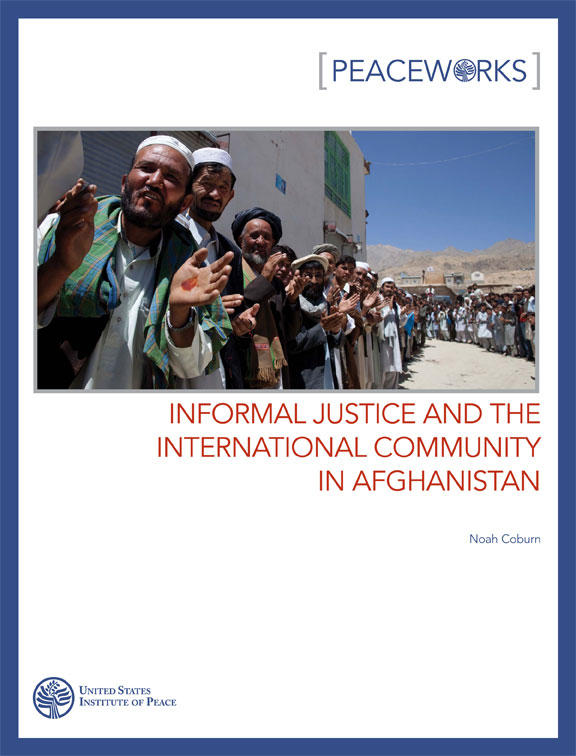Recognizing that lack of access to justice in Afghanistan was a serious problem that helped fuel insurgency, the international community launched an array of programs to research and actively support informal justice mechanisms. In some cases, these efforts hampered local dispute resolution. This study finds that the best approaches fostered an environment for local political change that strengthened linkages between formal and informal participants in the justice system.
Summary
- Informal justice is an often debated yet poorly understood concept in Afghanistan. Generally, it refers to a series of mechanisms, such as local councils (shuras and jirgas), that are outside of the state’s direct control—though not necessarily beyond its influence—and that are used to resolve disputes and conflicts in a manner perceived as legitimate by local communities.
- While few Afghans have confidence in the state’s ability to deliver justice through the formal court system, the informal justice sector in Afghanistan provides a pervasive and effective, if sometimes flawed, venue for the majority of the Afghan population to access justice.
- However, large, internationally sponsored programs attempting to promote rule of law through the informal justice sector have faced serious paradigmatic and programmatic challenges that have made these programs generally ineffective and, at times, counterproductive.
- In particular, failure to understand fragile local power dynamics and efforts to apply a unitary model have changed structures of local legitimacy and accountability and may have emboldened or empowered local actors with limited community oversight.
- Smaller, Afghan-led initiatives have met with more success in increasing predictable dispute resolution, suggesting that certain types of small, flexible, and context-responsive programs focused on linking the formal and informal sectors can promote more predictable access to justice, particularly given the challenges facing formal sector reform.
- These small-scale projects, however, still face serious challenges, particularly when it comes to monitoring and evaluation and coordination with other programs, including the National Priority Programs of the government of Afghanistan.
- The government of Afghanistan needs to be more sensitive to local justice concerns and work in particular with local leaders in a more cooperative manner that is aimed at improving relationships and locally legitimate service delivery and not simply at extending the reach of the state.
- The international community needs to commit itself more fully to increasing access to justice and dispute resolution for all Afghans—on the Afghans’ own terms. In doing so,it also needs to be respectful of local cultural patterns and cognizant of local political economies.
- Such a strategy means moving away from funding large projects that take a cookie-cutter approach to rule of law and that rely almost exclusively on outside experts and models and moving toward small, dynamic Afghan-led projects that have to date proven more competent on a small scale.
About the Report
This report analyzes the array of programs that dealt with the so-called informal justice sector in Afghanistan from 2008 to 2011. It focuses on a series of pilot projects sponsored by the United States Institute of Peace that engaged local Afghan organizations at the district and provincial levels to observe and record how informal justice systems resolve (or fail to resolve) people’s disputes, and how informal and formal justice actors relate to each other in practice. It also examines the expanding role of international actors in local dispute resolution and the impact that such interventions have had on local practices and perceptions of justice. The report finds that the informal justice sector provides a pervasive and effective, if sometimes flawed, venue for the majority of the Afghan population to access justice and argues that the international community should commit more fully to supporting local informal justice mechanisms.
About the Author
Noah Coburn is a political anthropologist at Bennington College. Since 2005, he has conducted over four years of research in Afghanistan for the United States Institute of Peace, the Afghan Research and Evaluation Unit, and other organizations. His study of local political structures, conflict resolution, and violence, Bazaar Politics: Power and Pottery in an Afghan Market Town, was recently published by Stanford University Press. He has a PhD in anthropology from Boston University and an MA from Columbia University.
